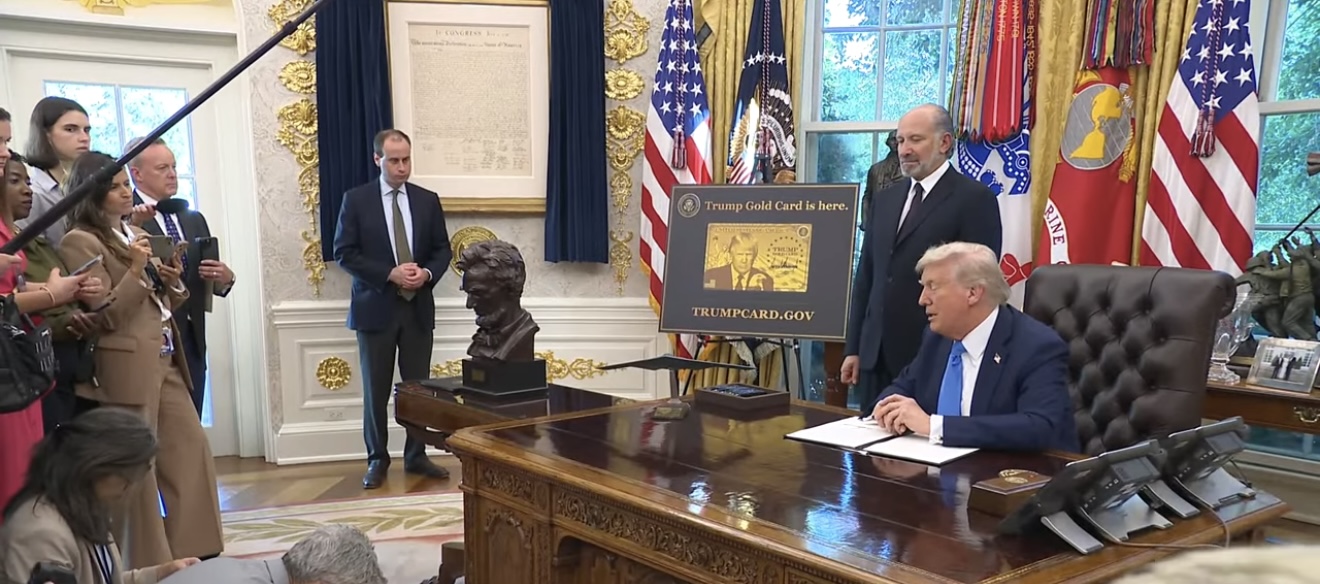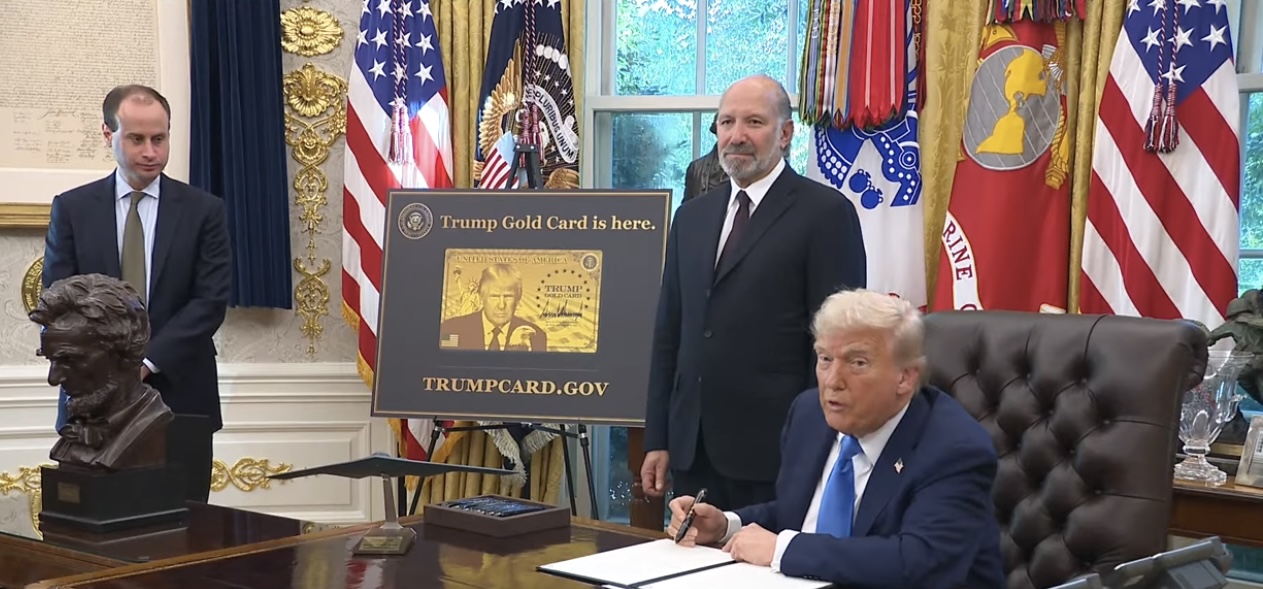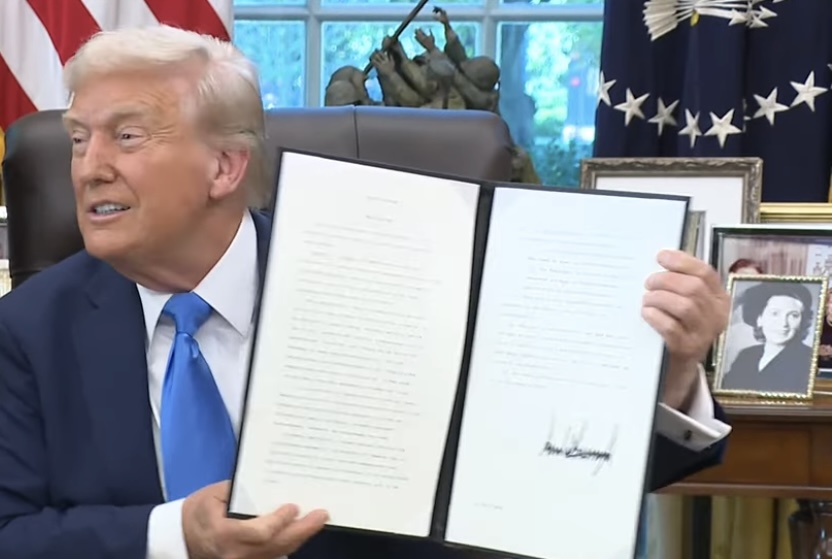Trump’s New H-1B Order Targets Cheap Foreign Labor, Puts India’s Tech Industry at Risk
By Raja Zahid Akhtar Khanzada
Texas: While US President Donald Trump and Indian Prime Minister Narendra Modi may appear inseparable on social media, a new executive order issued by the White House tells a very different story. The H-1B visa program, on which India relies more than any other country, is set to be hit hard by this latest decision from the Trump administration, sending shockwaves through India’s IT industry and several other sectors.
Under the new order, H-1B visa applications will only be considered valid if the sponsoring company pays an additional $100,000 per application each year.The restriction takes effect on September 21, 2025, and will initially remain in place for 12 months. The Department of Homeland Security and the State Department have been instructed to block entry to any candidate whose application is not accompanied by this payment and to tighten oversight to prevent the misuse of B visas for unauthorized employment entry.
The White House justified this move by stating that certain companies, particularly in the IT sector, have been misusing the H-1B program, replacing American workers with cheaper foreign labor. This, it argues, has not only suppressed wages but also created national security risks. According to the administration, the policy shift aims to give American students and graduates better job opportunities and to ensure that companies hire only the most skilled and high-value foreign professionals.
Official figures show that in fiscal year 2024, a total of 219,659 H-1B visaswere issued worldwide, with India accounting for the overwhelming majority. According to USCIS data, 71% of approved H-1B petitions were for Indian nationals, while China ranked second at 11.7%. The remaining eight countries combined made up a far smaller share. The top 10 countries and their respective numbers were:
1. India — 283,397 (71.0%)
2. China — 46,680 (11.7%)
3. Philippines — 5,248 (1.3%)
4. Canada — 4,222 (1.1%)
5. South Korea — 3,983 (1.0%)
6. Mexico — 3,333 (<1%)
7. Taiwan — 3,099 (<1%)
8. Pakistan — 3,052 (<1%)
9. Brazil — 2,638 (<1%)
10. Nigeria — 2,273 (<1%)
These figures, drawn directly from the official USCIS annual report Characteristics of H-1B Specialty Occupation Workers, FY 2024, clearly show that India stands to be the most severely impacted by this executive order.
The same report reveals that 64% of approved H-1B cases are concentrated in the computer/software sector, followed by engineering/architecture at 10%, education at 6%, administrative specializations at 5%, and healthcare at 4%. This indicates that while the tech industry will bear the brunt of the new policy, education, engineering, and healthcare sectors will also feel its ripple effects.
Dallas-based immigration attorney Naeem Sukhia explained that the executive order applies to all H-1B holders, but its impact will vary by sector. While the order is technically applicable to all specialty occupations, he said, the heaviest pressure will fall on IT and technology companies, which the government believes have been the primary abusers of the program. Sukhia noted that critical healthcare roles such as nursing and medical positions may qualify for national interest exemptions to prevent staff shortages in hospitals, but sponsors will need to provide strong evidence to secure such exemptions.
Regarding Pakistan, Sukhia stated that most Pakistani professionals on H-1B visas also come from the computer, software, and engineering fields, with a smaller yet significant presence in healthcare, education, and administrative roles. The new $100,000 fee and stricter vetting will therefore primarily affect Pakistani IT professionals and the companies that sponsor them. Engineering and education roles may also face increased barriers, though hospitals and medical systems could potentially secure exemptions by proving local workforce shortages, which could limit the impact on healthcare.
Sukhia emphasized that this policy is primarily a challenge for countries like India and China, which together account for more than 80% of all H-1B petitions. India, as the world’s largest supplier of IT professionals, is directly in the crosshairs. He said the executive order will deliver a major blow to India’s tech industry, and its timing is especially striking given that Modi and Trump publicly display a close relationship on social media. “This shows that while political optics may suggest warmth, the reality of economic and immigration policy is moving in an entirely different direction,” Sukhia remarked.

For Pakistan, the impact will be far smaller than for India, but sponsorship for professionals in IT, engineering, and education will become more expensive and difficult. Only Pakistani professionals who can clearly demonstrate that they are highly skilled and essential are likely to succeed. Hospitals and healthcare systems, however, may provide some relief for Pakistani doctors and nurses if they are able to secure national interest exemptions, allowing them to continue filling critical roles in the US healthcare sector.




